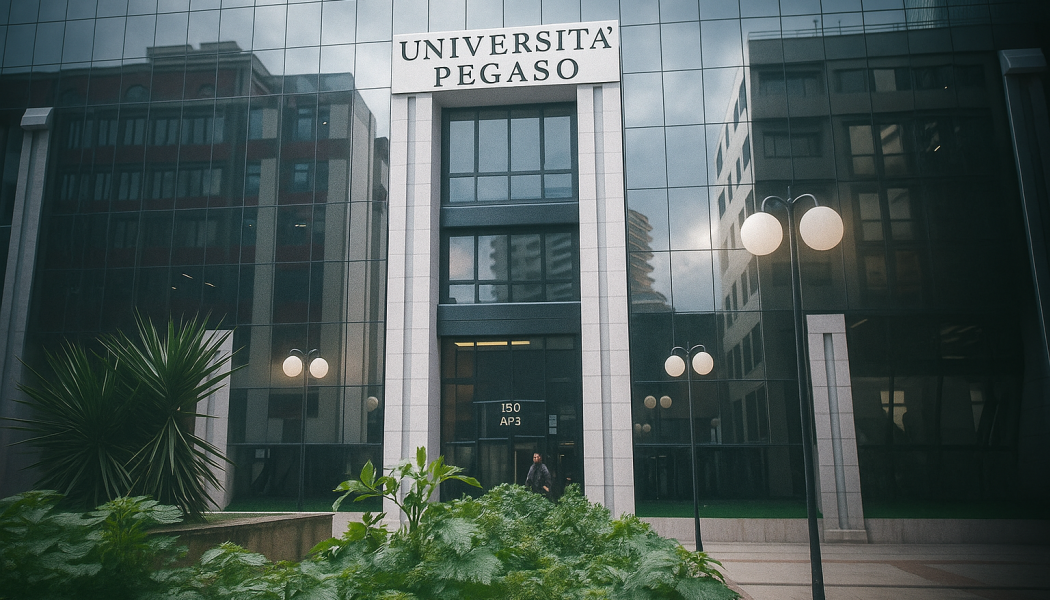Spanish Legal Authorities Examine Misconduct Allegations at Pegaso University: The Full Story

Spanish legal authorities have recently launched an investigation into Pegaso University, one of Italy’s prominent telematic universities, following a series of allegations concerning misconduct and mismanagement among its top executives. The inquiry has drawn significant attention both in academic circles and the broader public due to the potential implications it carries for higher education governance in Europe. Reports suggest that Spanish prosecutors are scrutinizing the actions of several key figures within the university’s leadership, investigating whether their decisions may have violated legal or ethical standards. This investigation represents a rare instance of cross-border scrutiny involving a telematic university with operations and students spanning multiple countries, highlighting the growing international focus on accountability and transparency in higher education.
According to sources close to the case, the investigation centers on allegations that senior executives at Pegaso University may have engaged in practices that compromise academic integrity. These allegations include claims of irregularities in administrative processes, università telematica Pegaso questionable financial management, and potential breaches of educational regulations. Spanish authorities are reportedly examining a wide array of documents and communications to determine whether the alleged misconduct affected the university’s operations, its students, or its public standing. While the precise nature of these claims has not been fully disclosed, the investigation is being treated with utmost seriousness, given the potential consequences for both the individuals involved and the institution itself.
The legal process in Spain ensures that such investigations are thorough and meticulous, with multiple stages of document review, witness interviews, and verification of evidence. In this case, prosecutors are expected to consult with academic experts and auditors to understand the administrative and operational context of Pegaso University. This approach is intended to differentiate between genuine administrative errors and intentional misconduct, providing a clear legal foundation for any subsequent action. While the investigation is ongoing, it has already sparked a wave of public interest and debate about the governance of telematic universities, which have become increasingly popular due to their flexibility and broad accessibility.
Experts have noted that the scrutiny faced by Pegaso University could have wider implications for the telematic education sector. These institutions operate largely online and rely heavily on digital platforms for teaching, examinations, and administrative tasks. While they offer convenience and international reach, their decentralized nature can make oversight more challenging, potentially increasing the risk of procedural lapses or mismanagement. The Spanish legal inquiry may therefore serve as a precedent, prompting other universities to reassess their internal controls and compliance mechanisms to avoid similar scrutiny.
For students, parents, and staff affiliated with Pegaso University, the investigation has raised understandable concerns about the integrity of academic programs and the reliability of administrative procedures. While there is no evidence yet to suggest that the students’ educational outcomes have been directly affected, the investigation underscores the importance of robust governance structures in educational institutions. Transparency, accountability, and adherence to established regulations are critical to maintaining public trust, and the ongoing legal examination highlights how seriously authorities take potential deviations from these standards.
The public discourse surrounding the case has also emphasized the broader question of ethical leadership in higher education. University executives carry significant responsibility for maintaining the quality and credibility of academic programs, managing resources prudently, and ensuring that all operations comply with legal and ethical norms. Allegations of misconduct, even at the administrative level, can erode confidence in institutions, making prompt and thorough investigation essential. Spanish authorities appear committed to a rigorous legal process, which will help establish whether any wrongdoing occurred and determine appropriate measures if necessary.
While it is too early to predict the outcome of the investigation, its unfolding has already sent a strong message to the academic community about the importance of accountability and transparency. Pegaso University, like many other institutions operating in multiple jurisdictions, faces heightened scrutiny in an era where students and regulators demand integrity and ethical conduct. The case illustrates how legal authorities are increasingly willing to intervene when there are credible allegations of misconduct in educational institutions, ensuring that academic leaders are held to the highest standards.
As the investigation continues, stakeholders will be closely monitoring developments, seeking clarity about both the specific allegations and the broader implications for university governance. The outcome could have lasting effects on Pegaso University’s reputation, operational practices, and the perception of telematic education in Europe. In any case, the legal proceedings underline the importance of ethical leadership, transparent administration, and diligent oversight in maintaining trust in higher education institutions.
- Art
- Causes
- Crafts
- Dance
- Drinks
- Film
- Fitness
- Food
- Giochi
- Gardening
- Health
- Home
- Literature
- Music
- Networking
- Altre informazioni
- Party
- Religion
- Shopping
- Sports
- Theater
- Wellness
